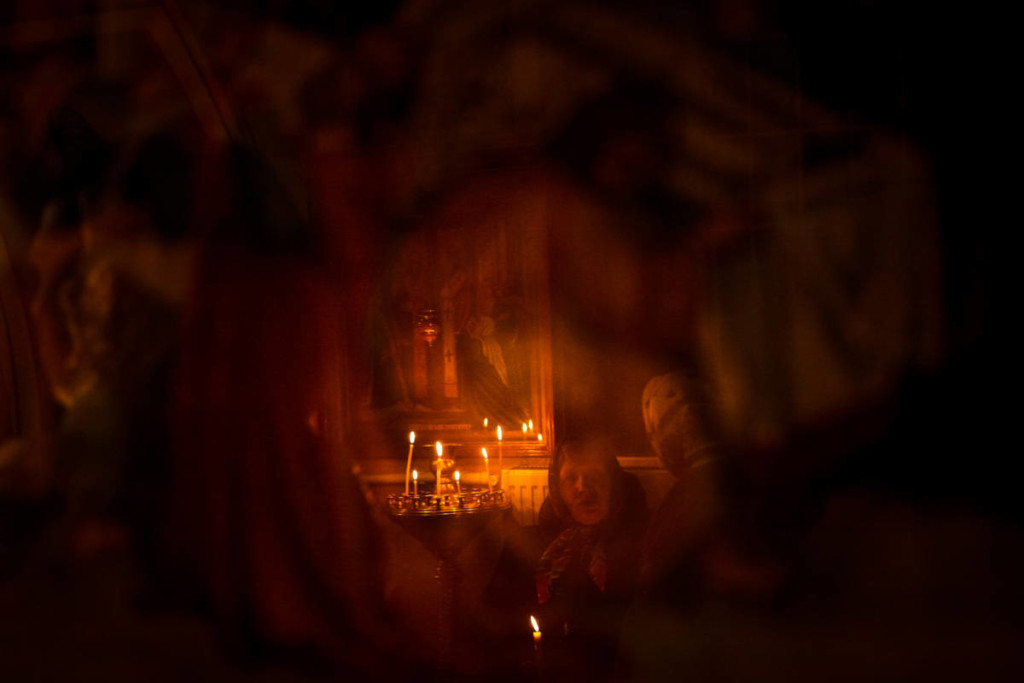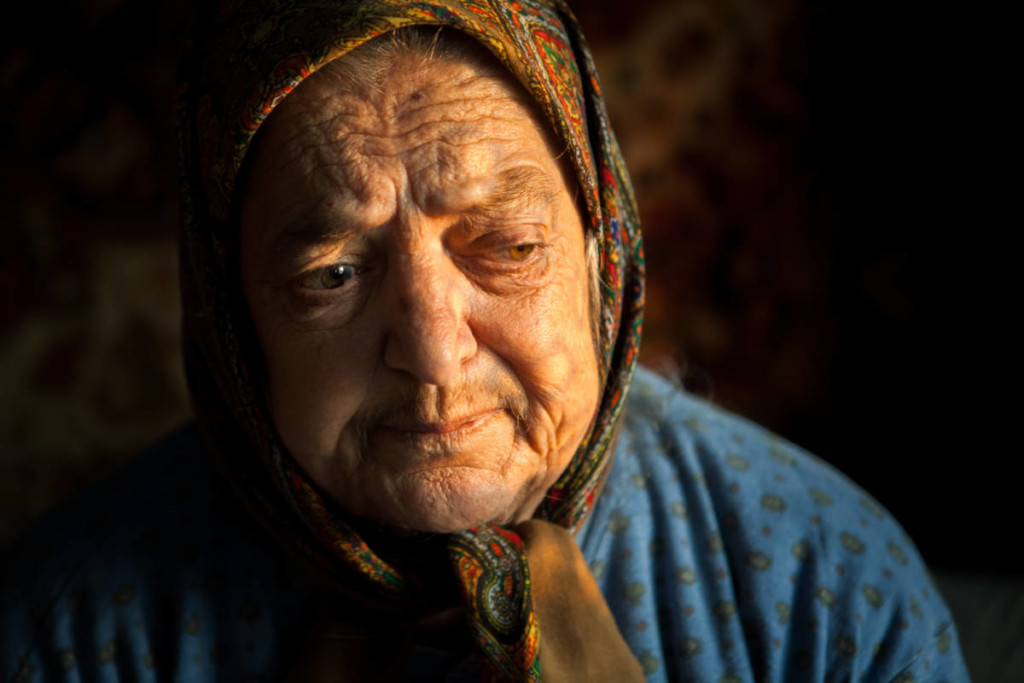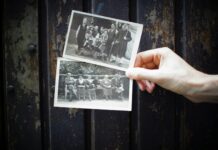Today I want to feature a photo series by Clary Estes.
Description
“Hundreds of thousands of people from a corner of eastern Europe were forcibly deported as political exiles during two waves of Soviet repression in the 1940s. Many of them died during the journey or in exile. Others returned home with shattered lives. Only a few survive today. “Those Who Remain” tells their stories.
The Stalinist regime devised the deportation program to identify and exile political dissidents from what is now the Republic of Moldova. Those selected, often for reasons having nothing to do with politics, were killed or exiled with their families to remote regions of Kazakhstan and Siberia. Those who survived had to wait years to be liberated. If they managed to return home, they were systematically silenced and shamed by the Soviet and post-Soviet societies. Only recently, long after most of them died, have they been free to speak publicly about their ordeals.”
Pasha, an elderly woman living in rural Moldova, sits in the warm evening sunlight, as we talk about her life in the single, small room she inhabits every day. She is frequently moved to tears as we discuss her exile to Kazahkstan, “[The night we were deported] …they took us to the police station in Floresti (a nearby town to Vadeni, Pasha’s home village, in the Northern region of Moldova). From there, they put us in a cattle car on a train. There was nothing inside. No toilet, no food, nothing, and thus we traveled for 2 months … some people died [during the journey], inside the train cars.” – Pasha Graur Across the former Soviet Union, millions of people were forcibly deported over the course of decades to the Eastern Soviet States of Kazakhstan and Siberia. This event is one of the longest and deadliest government campaigns in history. In Moldova, hundreds of thousands of people were deported over the course of two decades, from 1939 to the early 1950’s. The wave of deportations targeted intellectuals, large landowners, dissidents and, at times, regular people who had done nothing to promote attack. Those who were deported had their land and homes taken from them and redistributed to the Soviet state and were deemed “Enemies of the People” and were systematically shamed and silenced over the course of decades. Only recently has Moldova been willing to listen to the stories of deportees and try to understand the dark history of their country. Pasha’s memories, like many memories from deportees, regularly jump from the distant to the more recent as she tells me of the day that she requested her sister Ana Graur-Munteanu, along with her family, to take her in and let her be part of their family due to the lack of care she found with her in-laws in her old age, “My daughter-in-law… Better not talk about her. Not even once did she take care for me and she never will. She once went to a neighbor to tell her that if I wasn’t going to leave, she would pack my bags and kick me out… And so I… wrote a letter to Alex (Ana Graur’s son) and Ludmilla Munteanu (Ana Graur’s daughter-in-law, with whom Ana lives), to their children, to the relatives from Italy and to my sister and I wrote them, ‘Please accept me into your family, please come and take me as soon as you can, for I have had enough, I can’t take it anymore! Other people have food to eat, but although I have money, I starve, for I can’t go and buy what I need.” Pasha can no longer walk due to extreme leg pain and is confined to her one room in the small separate house she and Ana share. Pasha often thinks about her death saying, “I keep telling them to bury me next to our mother, for all my life I’ve been among strangers.”

Ana, Pasha’s sister sits in the family kitchen as she prepares coltunasi, a traditional Moldovan dumpling, in the dead of frozen January. I see that she is staring quietly into nothing and I ask her what she is thinking about. She responds simply with, “My sister, my [eldest] daughter in Italy, my brother, [Leonid] who died. I am remembering my family.”
Ana is the pillar of strength of her home. Always busy, she rarely takes a moment to sit and rest. As I have gotten to know her better it becomes clear how she uses her work as a means to survive her past. The moment she stops working, the memory flood in and, at times, a quiet melancholy will cross her face.
As we talk more and she laments her age, I joke that she is still young and active. We laugh together and she later says, “I don’t know if I was ever young. My childhood was so sad, I don’t think I was a child then.”

“The deportation occurred in 1951, but we were among the last to be taken away, because they had a hard time catching my mother.” Says Ana, “Given the fact we were only children, they had to catch my mother first. They had intended to take us away, like they did to our grandfather, around 1949 or 1941, but we were caught in 1951.”
When the Graur women were deported to Crasnai Octeabri, Kazakhstan, Ana, Pasha and Maria with their mother, Maruşca, sitting in front of them, had a family portrait made, a common practice at the time.
Ana recalls, “We had a rough childhood. My mother would work with the pigs [in Kazakhstan]; the poor dear would cook food in huge pots. [S]he would clean, and do everything that the big bosses told her to do. They wouldn’t give us much food. Our poor mother would place some of the pig’s food at the bottom of the pot and would cover it up with a layer of weeds and a layer of horse dung so that no one would catch on [that we were hiding] extra food. She’d tell them that the dung was for the walls. She would visit our house and set the dung and weeds aside so that we could eat to our heart’s content. My mother was glad that she could feed us somehow. It was really hard at the beginning. Then, we managed to slowly build our own little clay house with our bare hands and with the help of [our neighbors]… This is how we lived, among strangers, through no blame of our own. Every day was filled with hard labor, tears and sorrow. We got a desperate letter from home, which told us that they’d captured all the [Moldovans] in Romania (where their father was in hiding). They were brought to Odessa, tried, and sentenced for life all the way in the Kuril Islands. I never heard from my father. We know that a lot of prisoners and fellow villagers died there in terrible [Gulag] conditions.”
*Note – It would seem that Ana may be referring to the Kuril Islands in the disputed northern archipelago of Japan. Further investigation into a gulag there is needed.

Ana climbs through the village of Vadeni as she traces the steps of her childhood in the village before she was deported.
Ana remembers, “The road back home was easier. From Kazakhstan to Floreşti we traveled in boxcars, and now with our naked eyes we could see the reality. We were going home and we were wondering, would we really return to the house we had, where would we find shelter? When we crossed the Nistru (the river that creates the eastern most border of Moldova), I was so excited that my eyes welled up with tears and stayed that way until we reached the village. Our pain was great when we learned that our house was now a primary school. Where were we going to go? Who will accommodate us? Mother met with the Soviet Committee president, Comrade Sochircă, who said, ‘Maruşcă, I thought that from where you were taken to you would not return, but you came back with children and all. The house is no longer yours, it belongs to the state.’ Mother replied that God is great and He took care of us, helping us to return home. We stayed with our biggest sister, who took us all in. At school, we were received with understanding and compassion. Tears would fill our eyes as we were passing by our old house and watching as the village children played in the front yard. People who bought things from our house would not give them back (Ana and Pasha’s childhood home was taken by the Soviet state and all of their good sold off to people in the village). Only a woman, Anastasia Boj, came to mother and said, ‘Maruşca, I gave three rubles for your sofa. You have marriageable daughters, I will return the sofa to you.’ My mother wept and tearfully thanked her very much.”


Nina Postica, a former deportee to Siberia, and her family go to visit her brother and mother in her parents’ home village of Nemteni on the border with Romania for Pastele Blajinilor, an orthodox portion of the Easter celebration where families go to the gravesites of loved ones with food wine and offerings, blessing the gravesites with their memories.
Nina’s family was deported to Tyumen, Russia, in Western Siberia, in 1941 during the first wave of deportations in Moldova. The first wave of deportations was aimed at intellectuals and political disidents and ranged from 1939 until 1941. The second wave was directed at economically higher casts of people and took place in the late 1940’s.
Nina’s father was sent to the gulag from which he was later released and joined his family in Tyumen after Stalin’s death. Nina was born in Tyumen shortly after her father’s return.
When remembering what happened to her and her family, Nina says, “May this never repeat… May future generations never go through such unjust events… For this for was an injustice… an injustice… May it never happen again…”
“So few of us remain… From those who were taken away… Who were so wrongfully taken away. They should give them justice!” Says Nina.
Nina lives with her husband, Ion, who was also deported with his family at the age of 3.

Ion and Nina were married on the 21st of May 1977, after only 4 months of courtship. Their godparents, Tamara and Gerasim (who was also a deportee, part of the Constantinides family), stand beside them. Gerasim lives only a few doors down from Ion and Nina in Bubuechi, Moldova near the capital, Chisinau, and speaks mostly Russian, still having trouble coming back to the Moldovan language. He is ethnically Greek.
“I got married to [Nina], a deportee as myself, in that, her parents were deportees, and we live peacefully now.” Says Nina’s husband, Ion, “We have two boys (Alex and Pavel), they have their own children, our grandchildren, and we are retired. Now, we stay at home and rest!… I am happy with my life, except for the fact that we were oppressed. I lost a brother [in Siberia] and our parents suffered a lot. Imagine how it was to move with 5 children all the way to Siberia, where it is -40/-45 Celsius. How can you deal with such a situation? We managed somehow. I thank our parents,”
While Nina’s family was deported to the more western of the Siberian region, Ion’s family was deported to one of the eastern most parts of Siberia, a harsh, wild and frigid landscape. There are many stories of deportees freezing to death in the western Siberian region due to lack of proper clothing coupled with the need to travel long distances to go to school, work or move their families to other work camps.

Nina’s father, Elli, like all Soviet prisoners endured harsh conditions in the gulag, which killed many and likely were the cause of Elli’s health problems after he was released. It is a common theme in the deportations history that families do not know if their loved ones died in the gulag as a result of illness or because they were executed.
In the image above, Elli’s last name, Tanase, is written in Cyrillic script, as well as his year of birth, 1901.
“We were rehabilitated somewhere around 1990, our parents and us, who were born in the detention places of our parents.” Says Nina, “We were rehabilitated, but they still thought of us as the enemies of the people even though we did nothing wrong… As our father used to say, ‘I have nothing to regret… Everything I’ve done was legal according to the law. I’ve never broken the law. I’ve never broken anything. I’ve hurt no one. But how I suffered… For an injustice”

Ion says goodbye to Nina one last time at her gravesite on November 27th, 2016. I had called Thanksgiving day in hopes that I could spend “Old Christmas,” the orthodox epiphany date of Christmas in Moldova held on January 7th.
Ion answered the phone. When I asked how he was doing he simply replied, “Bad.” “Why bad?” I asked. “Nina a morit.” He said. Nina died.
I was shook by the unexpected loss. For the next couple of days I was sure that I had misheard Ion. ‘My Romanian is bad, I couldn’t have understood correctly,’ I thought. But unfortunately, when I went to their home, there Nina was. This beautiful light of a woman was gone.

As I mourned Nina Postica I thought about everything she has yet to say, all of the conversations we would never have.
“Surely there are things that I forget to mention…” she muses, “[I wonder if I can] ever remember everything…”
I will never sit with her in the summer air again. I will never again hear her recite Mihai Emenescu. I will never get her warm hug as I walk through her kitchen door. I cannot help but think that I failed her, that I didn’t capture enough of her story. I was naive to think that I had more time. Life, as it always does, made a point of reminding me that our time is fleeting. Nina’s story shows that these stories are dying before our eyes. We must capture them. We must listen. We must show these victims of extreme injustice that we see them, that we hear them and that we believe that what happen to them was wrong. Only we can be insure that this never happens again. Only we can show these former deportees that we care and that their lives, despite the oppression, hardship and shaming that they faced, is important and means something, something deep, something utterly human.

Bio – Clary Estes was born and raised in Kentucky and is currently living internationally and working on a variety of photography projects in Japan, China and Moldova. After she graduated with a Masters Degree in New Media Photojournalism from the Corcoran College of Art and Design in 2013 she moved to Japan as an Ishibashi Zaidan Photography Research Fellow with Nagoya University for two years. She is now living and working in rural Moldova with the Peace Corps. As a storyteller, Estes’ interests lie in long-term documentary projects focused on underserved, obscure communities. Her work does not merely document a story straight on; rather, it analyzes and re-analyzes the story over the course of months and years to show the dynamic and complex nature of the stories we live.
Website: http://www.claryestes.com/



































